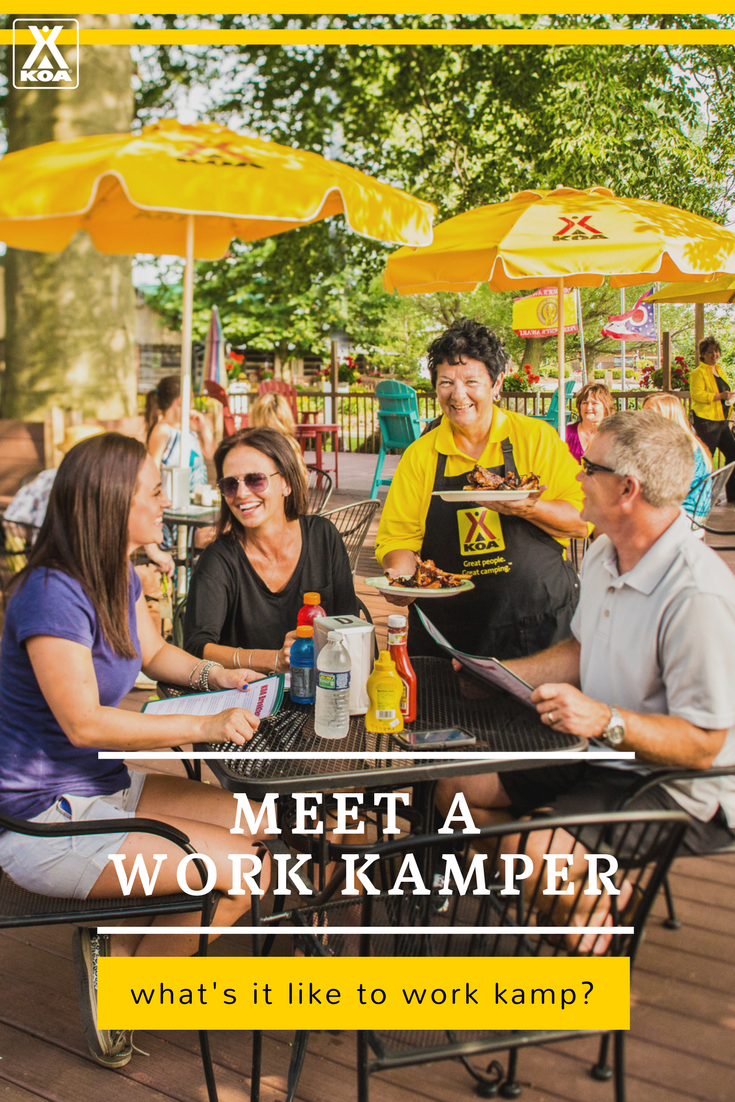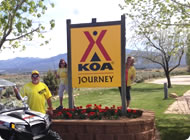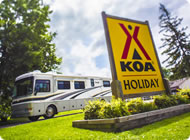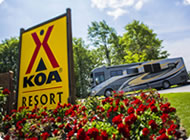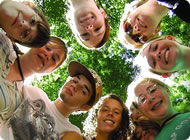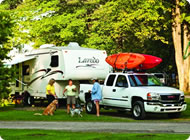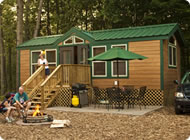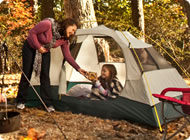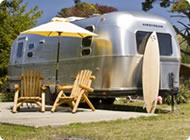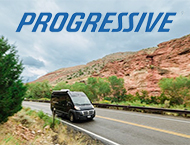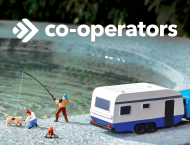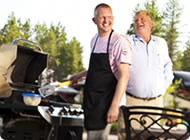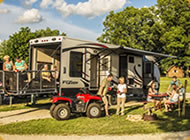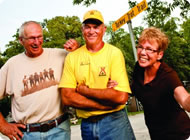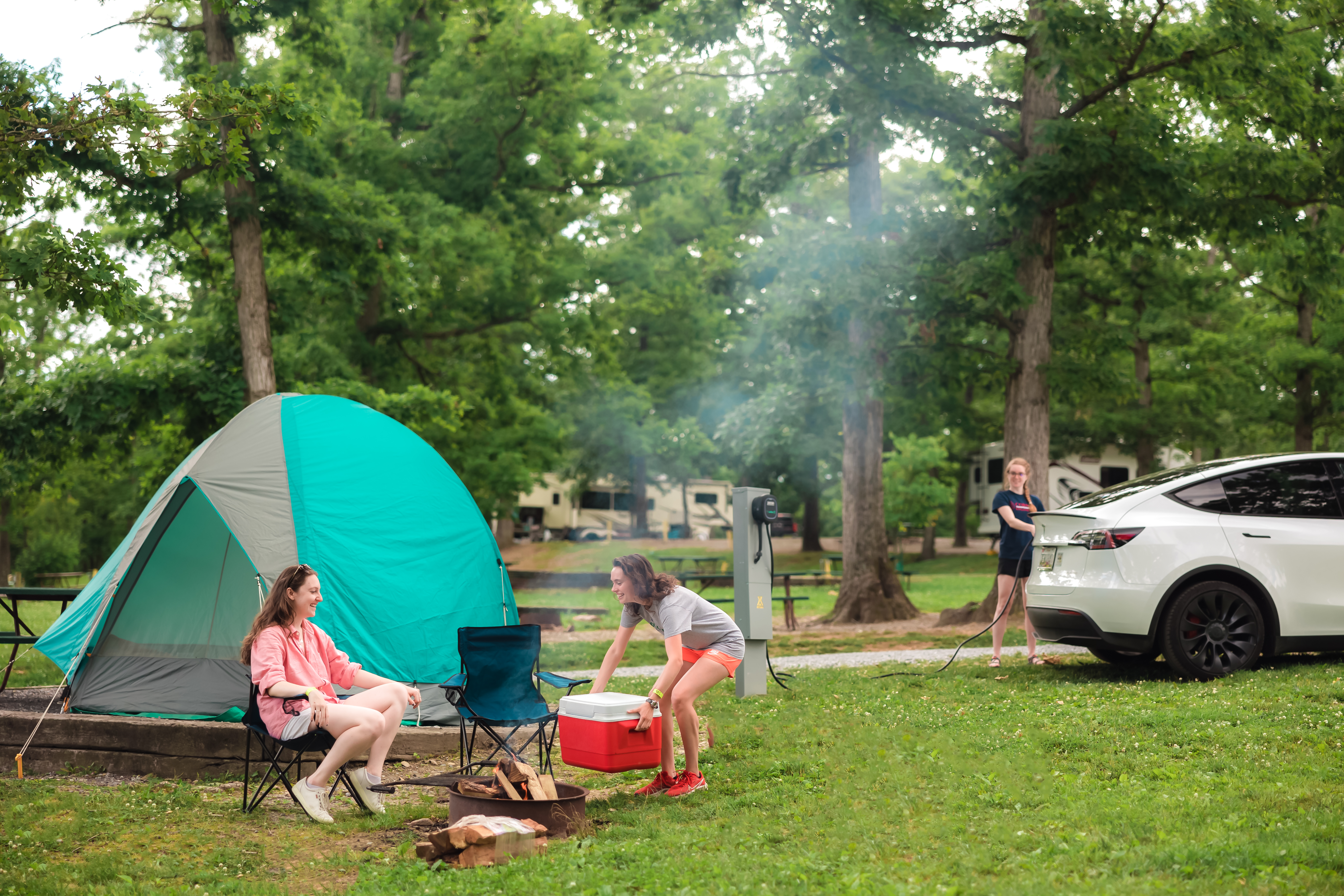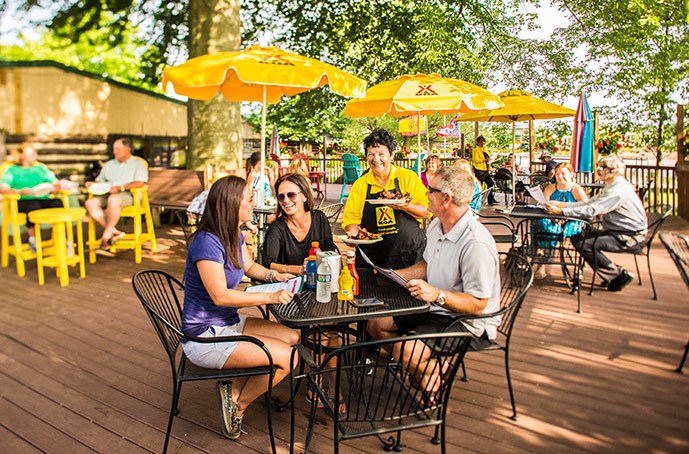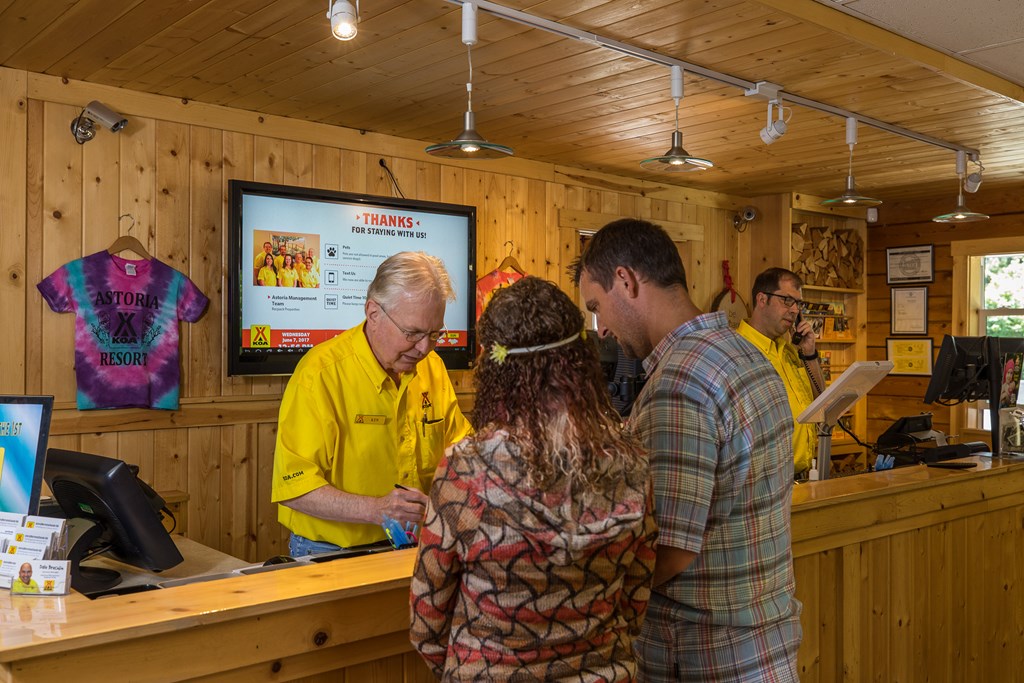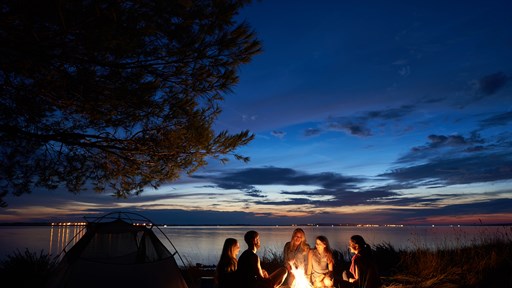A Work Kamper shares all and talks about what it’s really like to work and live on a campground.
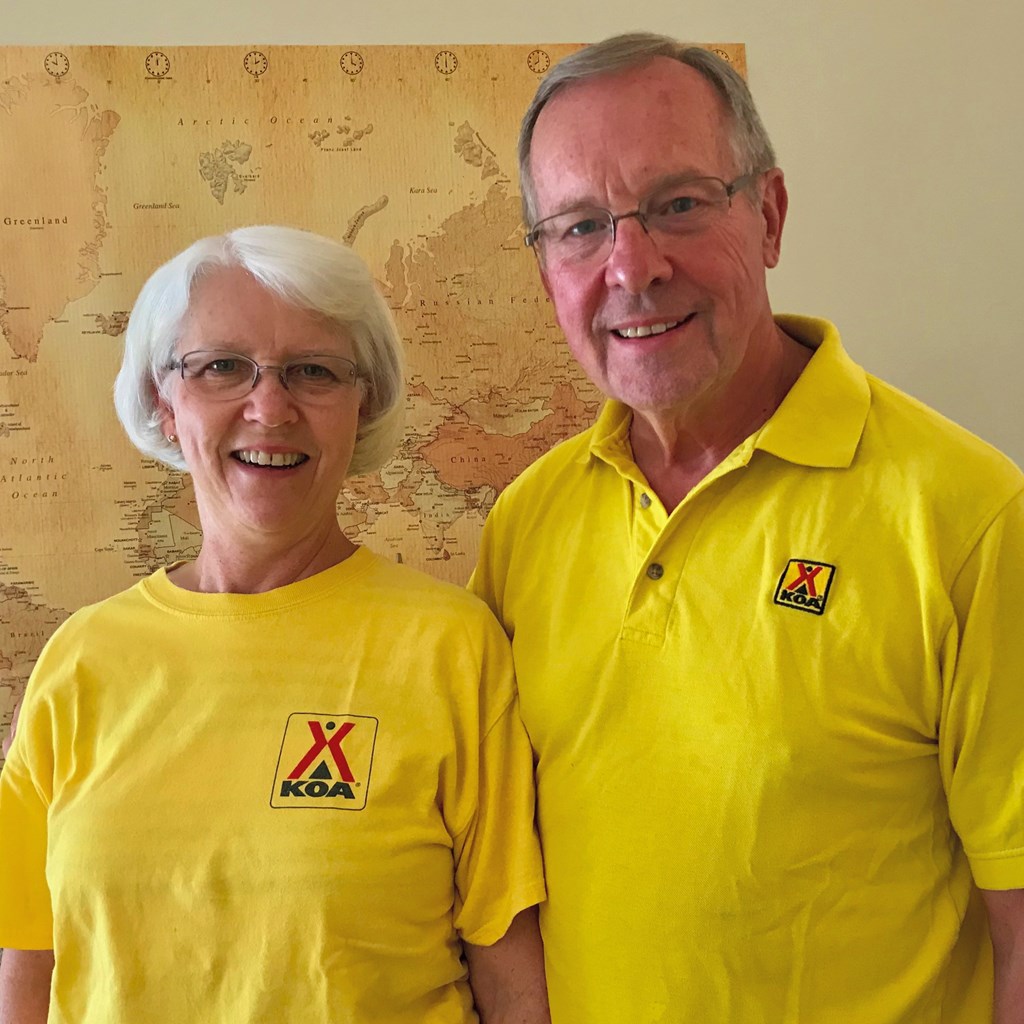 Meet the Songers. If you’ve ever wondered what it’s like to be a KOA Work Kamper, you should get to know this couple. Byron and his wife, Martha, are three-year veterans of the program designed to provide KOA campgrounds with seasonal, short-term help. They recently completed their third season at the Jackson Hole / Snake River KOA where they got paid to ensure campers like themselves had a great time while in Jackson, WY. Their first Work Kamper stint was at the Wisconsin Dells KOA and next year they look forward to working at Copake KOA in New York’s Hudson Valley. In between seasons, Byron recently volunteered his time to share what it’s like to be a Work Kamper.
Meet the Songers. If you’ve ever wondered what it’s like to be a KOA Work Kamper, you should get to know this couple. Byron and his wife, Martha, are three-year veterans of the program designed to provide KOA campgrounds with seasonal, short-term help. They recently completed their third season at the Jackson Hole / Snake River KOA where they got paid to ensure campers like themselves had a great time while in Jackson, WY. Their first Work Kamper stint was at the Wisconsin Dells KOA and next year they look forward to working at Copake KOA in New York’s Hudson Valley. In between seasons, Byron recently volunteered his time to share what it’s like to be a Work Kamper.
Diverse Backgrounds
There’s no cookie cutter career track for becoming a Work Kamper. Byron, now retired, spent 15 years serving as a church minister, 20 years working with Apple and eight years teaching Fine Arts at a community college. Martha’s background is just as varied. “My wife worked as secretary at the University of Georgia, managed her own Christian bookstore and was a public school secretary before working for several years as a medical transcriptionist,” says Byron.
Location Dependent Compensation
“We also like being members of the program so we can post our resume for hiring managers to see,” notes Byron. Members are also notified of postings from campgrounds currently hiring Work Kampers. Since many KOA campgrounds are independently owned, compensation and benefits packages—often including free or generously discounted sites—vary by location.
Best Day Job Benefits? Day Trips
“We like seeing and touring parts of the U.S. where we would not normally spend a good deal of time,” Byron begins. “By working at a different KOA each summer, we are allowed to get to some of those areas. On our days off we do spend one day traveling throughout the area taking in the sights and activities. That’s a nice benefit not available for employees in other occupations.”
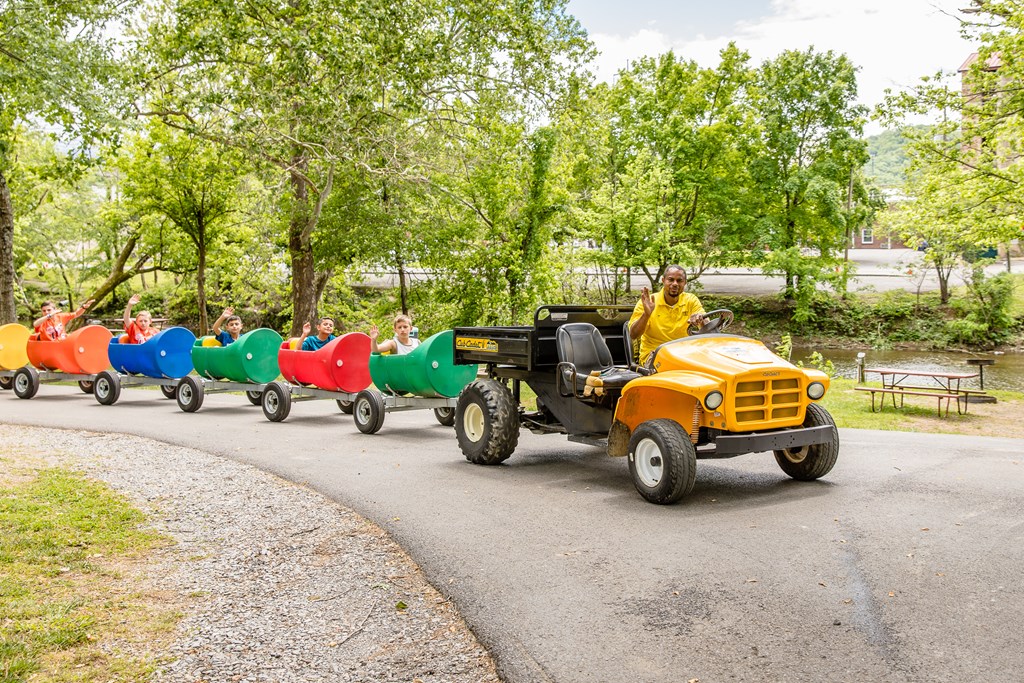
Intangible Rewards
Like most positions in the service industry, one of the most fulfilling aspects of being a Work Kamper is hard to monetize. When asked what inspires him on the job, Byron says it’s the impact he has on how guests spend their time. “It’s always nice when a guest returns to the KOA and says that your suggestion on what to do or where to go was helpful in providing them a good experience.”
A “Healthy” Amount of Grunt Work
When asked what surprises new Work Kampers the most, Byron says it’s a good question. His answer? “Based on observations of this year where we saw a few couples come and go, I think the thing that surprises them most is that we do real work. I think some have an expectation based on what they see on the surface; that the job is all about having fun being with guests. While that is one aspect of the typical deployment, it is important to remember there are other aspects of the typical office and maintenance positions that require doing a healthy amount of ‘grunt work.’”
Hospitality, Stamina and Initiative
Byron says the most important characteristic Work Kampers should possess is enjoying being around people of all kinds. “You have to like dealing with guests,” he acknowledges. “Some people follow guidelines and some have to be guided in that direction. Some are quiet and some tend to be noisy.” That leads to the second most important characteristic he cites: stamina. “This is both of the physical nature and the psychological nature,” he adds before going on to list the third quality Work Kampers need: initiative. “It’s important to be a self-starter. This involves seeing what needs to be done, doing it with little supervision, not worrying about recognition from management or guests and doing what’s best for the campground/company.”
Diverse Job Descriptions
Much like compensation, responsibilities and tasks for Work Kampers are dependent on the location and the campground’s needs that season. “Things don’t just get done,” says Byron, hinting at what goes on behind the scenes. You don’t have to be a Jack of all trades to be a Work Kamper, but being able to adapt and thrive in different environments is beneficial.
Interactive Office Duties
While the beauty of most KOAs is their natural surroundings, Work Kampers can spend a lot of time indoors. (It’s a perk on rainy days and for those seeking lots of guest interaction.) Byron describes a typical day as answering the phone and handling reservations, arranging and selling store merchandise, and depending on the location, selling other services such as guided tours. Of course, the office is usually the first place campers go when they have a question so you have to be knowledgeable about the campground and the area. Byron doesn’t sugarcoat the rest. “A typical day also involves telling a guest ‘no’ and explaining the rationale.”
Renaissance Men and Women
Work Kampers who are deployed outside usually work in escorting and maintenance. “The shift can begin by picking up trash and cleaning the vacated sites to prepare for the arrival of new guests (sweeping patios, cleaning picnic tables, and clearing the fire ring of debris),” explains Byron who also mentions he’s sometimes responsible for minor facility repairs and general landscaping. When guests arrive, there’s even more to do. “We escort guests to their sites, explain where services are located, help RVers park their rigs, deliver firewood and troubleshoot TV and WiFi issues.”
(Almost) Bleeding Yellow
Like many Work Kampers, the Songers’ relationship with KOA began as campers. “When we first started traveling in our motorhome, of course we faced the decision of where to stay,” Byron recalls. “As newcomers, our first reaction was to go to a KOA when traveling in unfamiliar territory where staying at a state park or public campground was an unknown.” He says it’s the same appreciation for knowing that a certain level of expectations will be met that has them now working for KOA. When they had the opportunity to retire from “regular jobs” and researched prospects that would allow them to travel while still bringing in some income, they decided KOA would suit them well.
“There’s a level of consistency from one location to another. There’s a more mature workforce with which to affiliate. We feel that, since we’ve enjoyed KOAs, we should do our part in returning the favor while helping others enjoy the same benefits,” Byron notes. “We don’t necessarily bleed yellow though it’s a close call.”
For more information on joining the Work Kamper work (and fun) force, click here. Special thanks to Byron for taking the time to share about his experience as a Work Kamper!
 Katie Jackson is a writer and media specialist based in Montana’s Big Sky Country. Living and working everywhere from New York to Nicaragua, Katie is no stranger to adventure. When she’s not traveling the world (or writing about it!) she’s busy chasing after a Leonberger named Zeus. Follow Katie’s travels on Instagram @katietalkstravel.
Katie Jackson is a writer and media specialist based in Montana’s Big Sky Country. Living and working everywhere from New York to Nicaragua, Katie is no stranger to adventure. When she’s not traveling the world (or writing about it!) she’s busy chasing after a Leonberger named Zeus. Follow Katie’s travels on Instagram @katietalkstravel.
